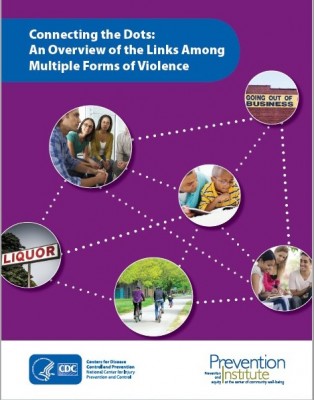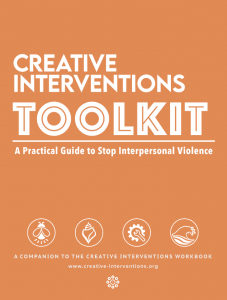Resources Library: Model Policies & Best Practices
Start a Search:
Confidentiality Templates for Agencies Working with Survivors
The National Network to End Domestic Violence (NNEDV) has produced model templates and guidelines for agencies that work with survivors of sexual and domestic violence around information confidentiality of client information. The following resources (available in English and Spanish/español) include suggestions for not only advocacy organizations, but also for visitors to programs, data retention and storage practices, working with partner and community organizations, co-located SDVAs, and shared-space programs. Please use these valuable resources as a guideline for creating policies within your agency around how survivor data is collected, stored, and shared.
TEMPLATES FOR AGENCIES WORKING WITH SURVIVORS
1. Notice of Rights & Confidentiality Form for Advocacy Organizations
This form is used to provide upfront notice to each person receiving services about their rights and your policies, including your agency's information sharing practices, confidentiality requirements, and the their rights regarding the confidentiality of their personal information and communications.
Download the template Notice of Rights & Confidentiality in English
Download the template Notice of Rights & Confidentiality in Spanish
2. Model Release of Information Form & Instructions for Advocacy Organizations
The Instructions for Advocates document should be read by advocates before using the Release of Information with survivors. This document is an educational tool that guides advocates through the process of working with survivors, and how to help them assess the risks and benefits of having your agency release their personally identifying information to another individual or agency. The template Release of Information form is available below in a one page format, and a large print format. This form enables the survivor to specify the personally identifying information they want your program to share, how they want you to share it, with whom, and for how long. (Be sure to insert your program or agency’s name in the document everywhere you see [Program/Agency Name] highlighted in gray.)
Download the Limited Release of Information template in English
Download the large print Limited Release of Information template in English
Download the Instructions for Advocates in English
Download the Limited Release of Information template in Spanish
Download the large print Limited Release of Information template in Spanish
Download the Instructions for Advocates in Spanish
3. Model Intake Form
For many programs, the intake process is one of the beginning steps in establishing a trusting relationship with a survivor and assessing their needs and requests for services. It’s important that this process is non-intrusive and avoids the collection of unnecessary personally identifying information. This template uses best practices to guide this process in the most helpful way possible for the survivor.
Download the Model Intake template in English
Download the Model Intake template in Spanish
4. Documentation Retention Policy / Procedures
This template policy addresses programs’ procedures and practices around document retention and destruction. Having these policies in place helps programs to ensure that their entire data management process, not just the collection aspect, is prioritizing confidentiality.
Download this template Documentation Retention Policy & Procedures in English
Download this template Documentation Retention Policy & Procedures in Spanish
5. Visitor Confidentiality Agreement:
The purpose of this template is to ensure that each visitor to a confidential shelter, rape crisis center, transitional housing program, or other victim service agency understands his or her confidentiality obligations and respects the privacy of survivors, staff, and volunteers of the agency or co-located partnership.
Download this template Visitor Confidentiality Agreement in English
Download this template Visitor Confidentiality Agreement in Spanish
6. Confidentiality, Privacy, and VAWA 2005 for Community-Based Domestic Violence/Sexual Assault Advocacy Programs
This model policy has sections addressing general principles; a written agreement to maintain confidentiality; definitions including what constitute confidential and personally identifying information; the prohibition to release information to anyone outside the agency (e.g., shelter address, staff, and survivor information); protocols for releases of information; and possible exceptions to confidentiality, including mandatory reporting. This policy is intended to be signed by all agency/program staff.
Download this template Model Confidentiality Policy in English
Download this template Model Confidentiality Policy in Spanish
TEMPLATES FOR COMMUNITY COLLABORATIONS
1. General Philosophy & Principles on Confidentiality for Community-Based Domestic Violence/Sexual Assault Advocacy Programs
This piece addresses principles that partnering agencies can agree to respect: transparent notice of victim/client rights, differing confidentiality and information sharing obligations, confidentiality walls, policy adherence, confidentiality commitments and duration, laws, and technology use. It suggests trainings & policies for specific innovative partnership types.
Download this Community Partnerships Philosophy & Principles template in English
Download this Community Partnerships Philosophy & Principles template in Spanish
2. Confidentiality and Privacy for Community Collaborations with Domestic Violence/Sexual Assault Advocacy Programs and Partners
This template addresses service providers’ understandings and responsibilities, victims' rights, and the limited sharing of client/victim information with collaboration partners and provides guidelines for addressing system issues through the community collaboration.
Download this Confidentiality & Privacy Guidelines for Community Collaborations template in English
Download this Confidentiality & Privacy Guidelines for Community Collaborations template in Spanish
3. Memorandum of Understanding (MOU): Partnership Agreement for Community Collaborations
This template Memorandum of Understanding (MOU) addresses policies to govern a partnership. It details individual partner roles and responsibilities, including information sharing and confidentiality obligations for a domestic violence/sexual assault agency, law enforcement, prosecutor, court partner, medical partner, faith-based and community organization, and a confidentiality monitor. All partners sign to acknowledge the agreement.
Download this Community Partnership Memorandum of Understanding template in English
Download this Community Partnership Memorandum of Understanding template in Spanish
TEMPLATES FOR CO-LOCATED PARTNERSHIPS
1. Confidentiality and Privacy for Co-Located Domestic Violence/Sexual Assault Advocacy Programs and Partners
This policy has sections addressing: common goals and understandings, information that gets collected during any collaboration intake process, assessing interest in services and safety planning, protecting confidentiality while collecting victim information, and details around managing the confidentiality of information inflow and outflow.
Download this Confidentiality & Privacy Policy for Co-located Programs template in English
Download this Confidentiality & Privacy Policy for Co-located Programs template in Spanish
2. Equipment Ownership Agreement Form for Partnerships
This form is to ensure that all agencies in a co-located partnership with policies or legal obligations to maintain the confidentiality of client records and data have clear agreements stipulating ownership of their paper files, hard drives, or other devices that contain confidential data.
Download this Equipment Ownership Agreement for Partnerships template in English
Download this Equipment Ownership Agreement for Partnerships template in Spanish
3. Sharing Physical Space for Co-Located Domestic Violence/Sexual Assault Advocacy Programs and Partners
This policy briefly addresses staff roles, office space, and building security for entities that share a building or have physical access to the space occupied by the partnership.
Download this Sharing Physical Space for Co-located Programs Policy template in English
Download this Sharing Physical Space for Co-located Programs Policy template in Spanish
4. Securing Paper and Electronic Information for Co-Located Domestic Violence/Sexual Assault Advocacy Programs and Partners
This template details policies that individual agencies and innovative partnerships should address to secure all electronic, paper, and faxed records and information, including computers, electronic networks, and passwords.
Connecting the Dots: An Overview of the Links Among Multiple Forms of Violence

The purpose of this brief is to share research on the connections between different forms of violence
and describe how these connections affect communities. It is our hope that this information, combined
with your own practical experience, will help practitioners like you to think strategically and creatively
about how you can:
1. Prevent all types of violence from occurring in the first place.
2. Coordinate and integrate responses to violence in a way that recognizes these connections and
considers the individual in the context of their home environment, neighborhood, and larger
community.
Corrections Agencies and Rape Crisis Centers Working Together Five Things to Know About Confidentiality
A resource from Just Detention International, this document helps advocates navigate confidentiality within carceral settings.
Click here to view the resource.
Creating Trauma-Informed Services Tipsheet Series
These tipsheets provide practical advice on creating trauma-informed services at domestic violence programs and working with survivors who are experiencing trauma symptoms and/or mental health conditions.
Recommended for domestic violence advocates:
A Trauma-Informed Approach to Domestic Violence Advocacy
Tips for Creating a Welcoming Environment
Tips for Enhancing Emotional Safety
Tips for Supporting Children and Youth Exposed to Domestic Violence: What You Might See and What You Can Do
Practical Tips for Increasing Access to Services
Tips for Discussing a Mental Health Referral with DV Survivors
Tips for Supporting Survivors with Reduced Energy
Tips for Making Connections with Survivors Experiencing Psychiatric Disabilities
A Trauma-Informed Approach to Employment Support: Tools for Practice
Creative Interventions: A Practical Guide to Stop Interpersonal Violence

Creative Interventions was founded to shift education and resources back to families and communities. Established in 2004, the project aimed to place knowledge and power among those most impacted by violence. Creative Interventions sought to make support and safety more accessible, stop violence at early stages of abuse, and create possibilities for once abusive individuals and communities to evolve towards healthy change and transformation.
In their words:
"This Toolkit the result of a 3-year period from 2006 to 2009 during which CI joined with partner organizations in the San Francisco Bay Area including Asian Women's Shelter, Shimtuh, Narika, and La Clinica de la Raza. We also had partnerships with other individuals and organizations such as those listed in Section 0.2: A Community Effort. Our organizations worked closely together to create a different, alternative approach to issues of domestic violence and sexual assault. All of our organizations have years of experience working in mostly immigrant communities on the issues of domestic violence and sexual assault. And all were interested in coming together to try to create different options for people experiencing violence. The 3-year project that we called the Community-Based Interventions Project brought our team together to create a new vision for violence intervention, to work with people experiencing violence, and to develop a model and tools from our work during that time."
Check out these toolkits developed by people who want to end the cycle of violence in our communities and our world. The 500+ page toolkits are available for download in English and Spanish but clicking the links below. Additional resources are available by visiting the Toolkits section of their website.

